Build a stronger core and improve your posture with this seven-move menopause abs workout
Improve your stability, boost your balance, and work your midsection with this equipment-free menopause abs workout
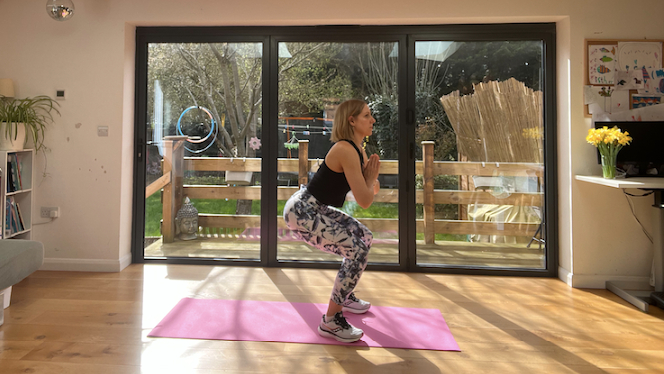
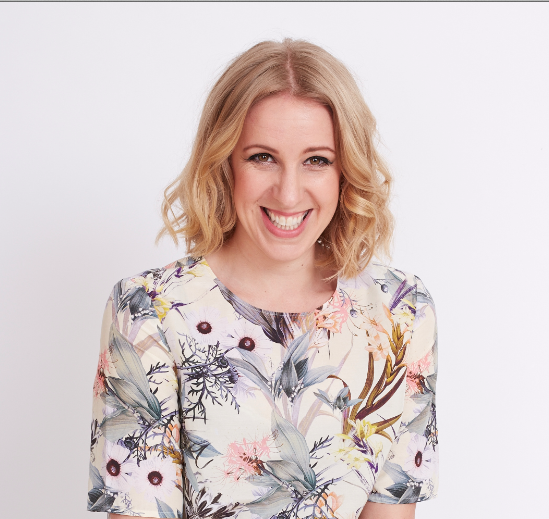
Strengthening your core with a menopause abs workout is an excellent way to support your body as you go through this stage in your life. Working your core helps connect your upper and lower body and promotes circulation to make everyday tasks easier.
As a personal trainer focused on helping women navigate menopause, I know many women's bodies change shape and size, often because of hormonal changes, like a drop in estrogen levels, that affect the way our bodies store fat.
This is why some women opt to take the best menopause supplements to make the transition a bit less fraught and to manage menopause symptoms. But using this menopause abs workout can also help keep you active and develop functional muscle around your midsection.
Plus, if you alternate it with a menopause HIIT workout, you can build a stronger core, strengthen the connection between your body and mind, protect your heart, and boost your metabolism to manage menopausal weight gain.
Seven-move menopause abs workout
Before starting this bodyweight routine, you want to ensure you've done a warm-up to get the blood flowing to your muscles and stretch them ready for your workout.
Once your muscles are primed, you can dive into the main menopause abs workout. This should take 15 minutes and is designed to work your core muscles to boost your balance, improve your stability, and promote circulation.
The aim is to do three sets of each exercise, working intensely for 30 seconds followed by a 30-second rest before starting the next move. However, as the plank jacks can be quite challenging, start with 20 seconds and gradually increase the time.
Get the Fit&Well Newsletter
Start your week with achievable workout ideas, health tips and wellbeing advice in your inbox.
Menopause abs workout plan
| Exercise | Time | Rest | Sets |
|---|---|---|---|
| Walking lunges | 30 seconds | 30 seconds | 2-3 |
| Squat into lateral leg raise | 30 seconds | 30 seconds | 2-3 |
| Russian twist | 30 seconds | 30 seconds | 2-3 |
| Single leg lowers | 30 seconds | 30 seconds | 2-3 |
| Inchworm | 30 seconds | 30 seconds | 2-3 |
| Plank shoulder taps | 30 seconds | 30 seconds | 2-3 |
| Plank jacks | 20 seconds | 30 seconds | 2-3 |
1. Walking lunges
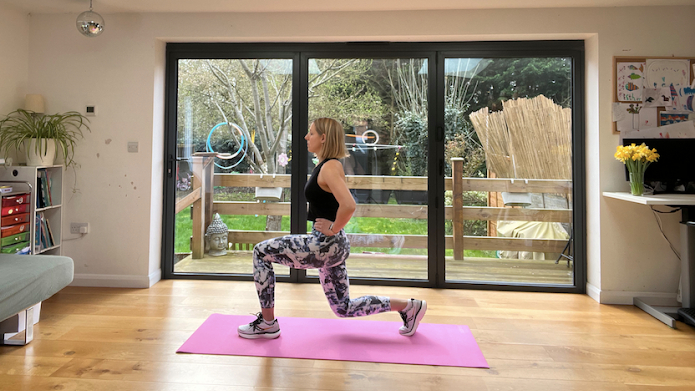
Muscles worked: glutes, quads, hamstrings, core.
- Start with your feet shoulder-width apart, hands by your sides or on your hips.
- Step forward with your right leg, putting the weight into your heel.
- Bend the right knee, lowering it until your shin is parallel with the floor.
- Hold here for a moment, before repeating the movement with your left leg, keeping your right leg in place.
- Pause once your left leg is parallel to the floor in a lunge position.
- Repeat this movement as if walking forward as you lunge, alternating legs.
2. Squat into lateral (side) leg raise

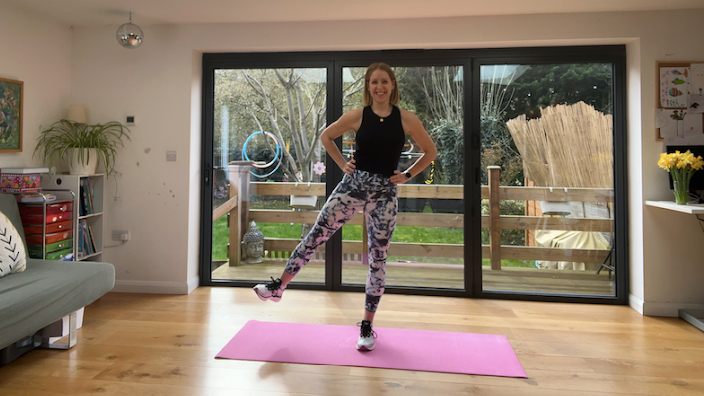
Muscles worked: glutes, quads, hamstrings, calves, hip flexors, abductors, and core.
- Stand with your feet shoulder-width apart and knees slightly bent.
- Lower yourself into a squat position with your thighs parallel to the floor and hold this position for a moment.
- Push through the heels and squeeze your glutes as lift out of the squat to the starting position.
- Transfer your weight to your left leg and raise your right leg out to the side.
- Hold for a moment before returning this leg to the ground. Keep your leg as straight as possible during the lift.
- Repeat this movement but transfer your weight to your right leg and raise your left leg out to the side.
- That's one repetition. Continue this pattern for 30 seconds.
3. Russian twist
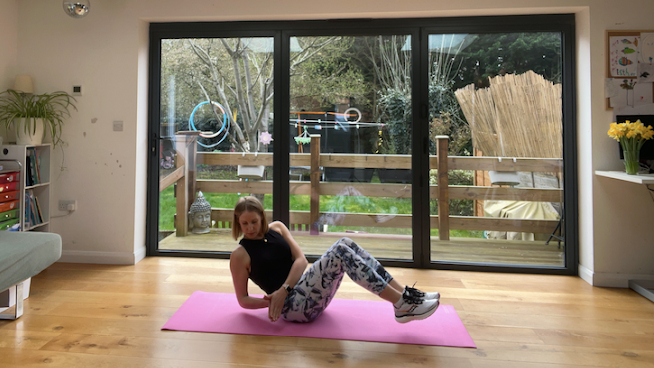
Muscles worked: core (obliques, rectus abdominis, transverse abdominis), hip flexors, latissimus dorsi (lower back).
- Sit on the floor with your knees bent and feet in front of you.
- Reach your arms straight out in front as you lean back until your hands reach your knees, creating a V-shape with your torso and thighs.
- Engage your core as you lift your feet off the floor and bring your hands together in front of your chest.
- Use your abdominal muscles to twist to the right, back to the center, and then to the left.
- That is one repetition. Repeat for 30 seconds.
4. Single leg lowers
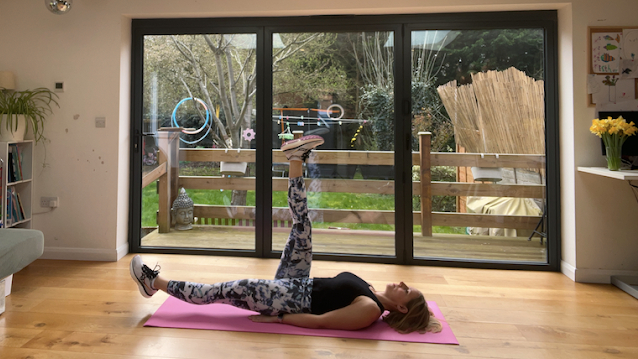
Muscles worked: core (abdominals and obliques), hips.
- Lie on the floor with your back pushed into the mat and legs straight up in the air.
- Engage your core and keep your head and shoulders on the floor with your arms by your side.
- Lower one leg towards the floor slowly until it's almost touching the floor, with the opposite leg still in the air.
- Pause and return your leg to the start position and swap legs.
- Repeat and alternate legs for 30 seconds.
5. Inchworm
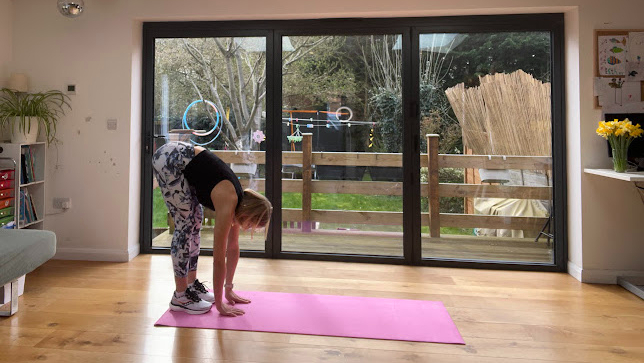
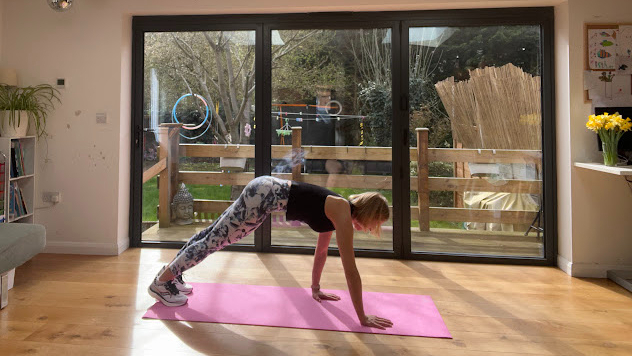
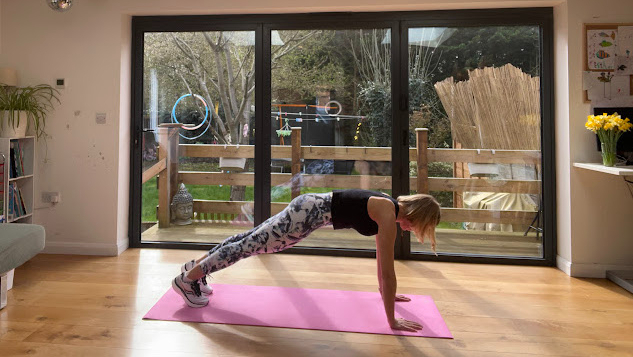
Muscles worked: core (abdominals and obliques), hamstrings, triceps, upper back, lower back, deltoids (shoulders).
- Stand with your feet shoulder-width apart, then fold forward with straight legs and reach your arms down towards the floor, keeping your head in line with your back.
- If you find it tough to reach the floor, you can bend your knees slightly as you fold forward.
- Slowly walk your hands away from your feet, extending your body into a high plank position.
- Slowly walk your hands back to your feet, getting your body back to an upright position.
- Repeat this movement for 30 seconds.
6. Plank shoulder taps
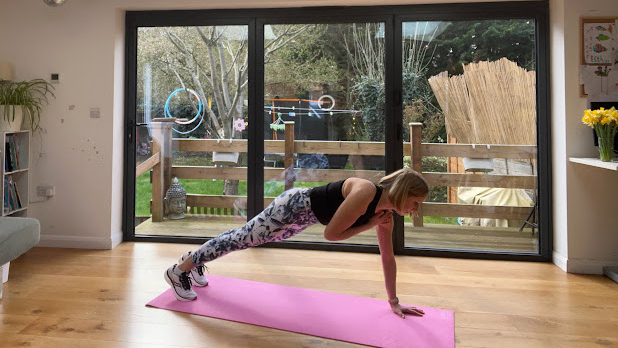
Muscles worked: core (abs and obliques), glutes, deltoids (shoulders), upper body.
- Start in a high plank position with your wrists under your shoulders and feet shoulder-width apart.
- Lift one hand off the ground, tap the opposite shoulder, then return it to its original position and swap hands.
- Repeat on alternate sides for 30 seconds.
7. Plank jacks

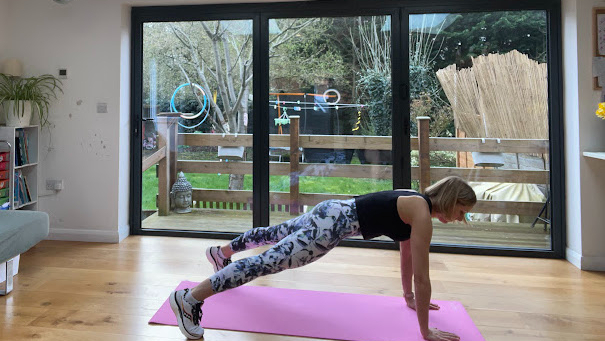
Muscles worked: pectorals, core (rectus abdominis, transverse abdominis, and obliques), deltoids (shoulders), back, and arms.
- Start in a high plank position with your shoulders over your wrists and legs hip-width apart.
- Brace your core by pulling in your tummy and jump both feet out to the side and then back to the center.
- Repeat this pattern for 30 seconds.
Using core strengthening exercises like these can be a great way to support your body — through menopause and every day life. Your core is a section of mid-body muscle that connects your upper and lower body.
Because of this central role, it plays a crucial part in your balance, stability, and performance in functional tasks like lifting heavy objects, reaching up to a top shelf, or carrying bags and groceries.
If you want an alternative way to strengthen your mid-section, which includes your abdominal muscles, you could invest in one of the best ab rollers. These portable, lightweight wheels won't break the bank but help work your core.
Maddy Biddulph is a freelance journalist specializing in fitness, health and wellbeing content. With 26 years in consumer media, she has worked as a writer and editor for some of the bestselling newspapers, magazines and websites in the US and UK.
She is also a qualified L3 personal trainer and weight loss advisor, and helps women over 40 navigate menopause by improving their physical and mental strength. At Maddy Biddulph Personal Training, she runs one-to-one and small group training for menopausal women who want to get fit to ease symptoms and feel like themselves again.
-
 Do your gut a favor with this dietitian's gut-friendly veggie-filled fried rice recipe
Do your gut a favor with this dietitian's gut-friendly veggie-filled fried rice recipeKeep your tummy happy with this flavorful twist on a favorite
By Lou Mudge
-
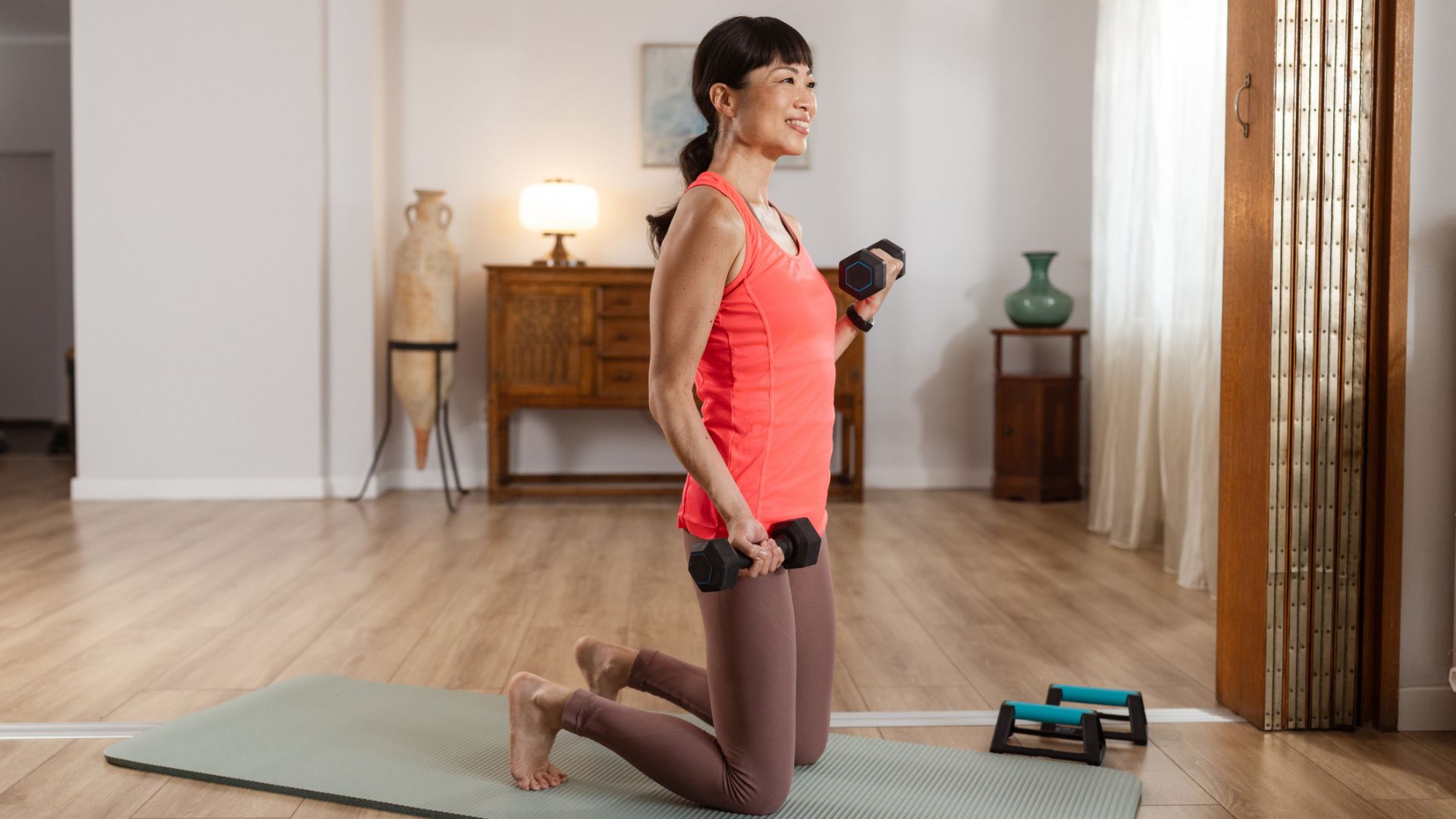 I’m a personal trainer and these are some of my favourite exercises to build core and upper body strength at home
I’m a personal trainer and these are some of my favourite exercises to build core and upper body strength at homeAll you need is a set of dumbbells for this kneeling workout
By Maddy Biddulph